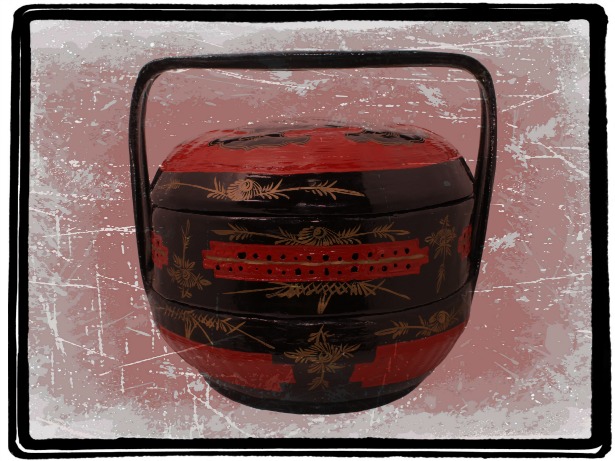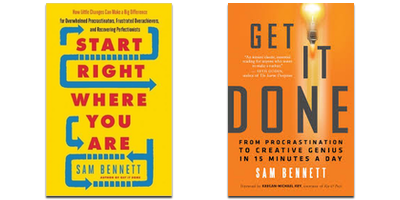
I always have a few small pieces of sea glass in my wallet: it’s my “mermaid money.”
Because, you know — mermaids don’t take cash.
Every time I look in my wallet I am reminded of the true treasures in the world: the beauty that’s all around us, the ability to create whimsy and magic, and the ephemeral nature of life.
What do you use to keep your eyes on the big picture?
Do you feel whimsy and beauty and magic around your ability to create cash?
Stress is what happens when we lose track of the big picture.

We love the story of life as a road. (Success is a ladder. Time is ever marching forward.)
But we know it’s not true.
We are on shifting sands, sliding forward and backward and sideways and diagonally in our thinking, our feeling, our learning and our lives.
Time swirls about us endlessly; effortlessly sweeping us back to That Day in the Third Grade…That Picnic by the Lake…That Long and Horrible Night…no, certainly time is the most unreliable of all the unreliables.
If we think of our lives as being linear, we cheat ourselves out of the fullness of our experience.
Plus, it’s that foolish linear thinking that leads to self-immolating thoughts like, “I should be more successful by now” and “Look, that person is more successful than I am.”
We know these thoughts are lies, too, but if you only measure by the clock it is all too easy to slip those lies into your pocket and carry them around as part of your belief about yourself.
The more we learn about our art (our love), the less we know.
The longer we live on this earth, the more the years seem to pass in a day.
As our fortunes rise and fall, the more we recognize that money and status are no more accurate a marker of success than a new crop of tomatoes or a big hug from an eight-year old.
Today, challenge yourself to notice the ways in which your life is a gyre, moving in many looping directions all at once. And how that is good and meet.
The world needs your art.

It’s really hard to ask for what you want in sexuality and relationships if you don’t know what to ask for, or how to start the conversation.
In our sex-negative culture, what would it mean to express your authentic sexual voice?
Many people don’t know how to talk about sexuality because they have no idea what they want.
Many don’t know how to have a conversation with others because they are so confused in their conversation with themselves, stuck in self-judgment, confusion, frustration or thinking something is wrong.
My friend and colleague Amy Jo Goddard does amazing work as a sexual empowerment expert and teacher and she is hosting this webinar on 2/24 on “Finding the Sexual Voice”.
We all have a sexual voice. Some of us need to find it, some of us need to express it, some of us need to shift it so we can get more of what we want and less of what we don’t.
In this 90-min webinar, you will learn:
- the difference between the internal and external sexual voice…
- the top sexual stories that get people stuck…
- what gets in the way of finding your true voice and inner “Yes”…
- steps you can take to tap into that inner Yes…
- how to bring your inner Yes into the outer world so you can get more of what you want in sex and relationships…
I support her message and I hope you will sign up and share.
TWITTER – include link to https://cc100.isrefer.com/go/voice/sbennett
.@AmyJoGoddard is teaching a webinar on 2/24: “Finding the #SexualVoice.”
How can you tap into the power of your unique #SexualVoice? A conversation with @AmyJoGoddard
It’s hard to talk about sexuality when you don’t know what you want. @AmyJoGoddard’s webinar on 2/24:
My friend & colleague @AmyJoGoddard is teaching this webinar on 2/24: Finding the #SexualVoice
.@amyjogoddard is on a mission to banish sexual voicelessness — please join!

It is not possible to lose 30 pounds.
It is not possible to write a book.
It is not possible to clear out all the clutter.
You know why?
Because it is only possible to lose a few ounces a day.
And it is only possible to write a sentence or two — maybe a few pages.
It is only possible to clear a bit of the room at a time.
This may seem like just word play, but stick with me here — because I think this is important for two reasons.
1) The Goal Cannot Be Achieved All At Once
Especially if you have a BIG goal, you may have put off working on it because…well, it just seems too big.
It’s so big that you don’t know where to even start.
It’s so big that you doubt you can complete it.
It’s so big that you question your worthiness, your credibility, your right to even attempt such a thing. (The phrase, “Who do I think I am?” may show up here.)
But when you remember that it is not the BIG goal that needs to be accomplished, but rather just the immediate step that’s right in front of you….
Well, that feels much better, doesn’t it?
(Need a suggestion for what one immediate step might be? Try picking one action that will take less than 15 minutes and is easily within your budget.)
And here’s some even better news:
2) The Goal Is Not a Destination
You may have noticed that sometimes you DO complete a big project, and you end up feeling sort of….deflated.
Depressed.
That post-Christmas let-down feeling.
Because you thought you were done.
You thought that once you achieved your goal you would be complete – and that something would change.
But once you lose 30 pounds, you still have to maintain all the discipline and self-love that got you there.
And once you complete your manuscript, it’s not as though you are done writing.
And even if every bit of clutter gets swept away from your place, it’s only a matter of time until more clutter creeps in.
This is not failure.
This is process.
So you might find it comforting that you are mid-process on just about everything.
That means it’s not too late to take the next step.
It’s not too late to begin again.
It’s not too late to delight the world with your art.

Read good books.
Watch webinars offered by people you respect.
Listen to podcasts hosted by smart, generous people.
There are a lot of brilliant people out there giving away their
very best secrets, and you owe it to yourself – and your
business – to learn as much as you can from them.
I know the sheer volume of information out there can feel
overwhelming, but dedicating some time each day to learning
will pay off in a thousand different ways.
Consider seriously points of view you don’t agree with. What do
they know that you don’t?

I had to share this THRILLING email from one of the participants in the Start Right Where You Are course —-
“If you had been in the room yesterday when I went to the most unlikely place in the house and pulled out the jeweler’s pouch with the long-lost diamond earrings, you would have heard screams of joy and excitement that have never before come out of a classy 85-year old’s mouth!
[My friend] Gloria had asked me last Friday if I could “logically and systematically” go through all of her jewelry boxes, elegant purses and designer jackets to see if her lost earrings could be found.
I wrote the exercises from Start Right Where You Are Lesson #2 right before I went to her house.
After we had spent time checking the logical places diamond earrings could be lost, I remembered your definition of Intuition as Cognition without Knowing…no documented or logical evidence and I got inspired to follow my “gut.”
I walked to a very public place in her house and noticed a one-foot tall Chinese wedding basket and started to walk away because
“logically, who would hide very expensive, large and valuable diamond earrings in the middle of a well traveled area?”
Then I remembered your definition and went to the Chinese basket and opened the top and it looked empty, however, I followed my intuition and swept my hand around the dark circle of the basket and found a small jeweler’s leather bag and brought it to Gloria.
As she opened it and discovered her treasure she was ecstatic and said, “You’re a Genius! How did you know to look there?” and I shared my Sam Bennett homework with her and let her listen to part of your call to hear your strong belief in Intuition.
She was so happy, she gave me a brand new necklace that we had found from India when we were looking in the “logical” places earlier.
Today she called me from her new home in Rancho Mirage and said,
“I am telling everyone this story and I am going to follow Sam’s list and get rid of my “Intuition Killers!”
I felt so alive when it happened and wanted to let you know how powerful your work is to get us back in touch with our Being…..
Joyous in Long Beach,
Ashley Waugh, an even bigger fan
And when I asked Ashley if I could share her story with you, she graciously agreed and added —
“I would love to be a small part of anyone falling in love with their intuition again…..”
So…what can you do follow to YOUR intuition today?
Let me know — you know I love to hear from you.







